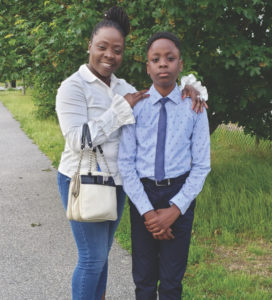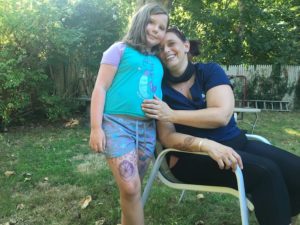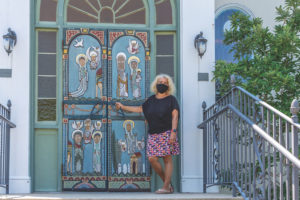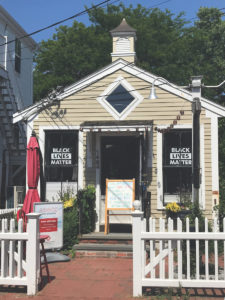EASTHAM — Tucked away in a corner classroom at the Cape Cod Children’s Place, four mothers and their infants sit on the floor in a circle. The babies coo and cry and roll around on a mermaid-patterned floor mat while their moms — between pauses to change diapers or breastfeed — discuss the trials of being parents on the Outer Cape.
“Being a mom anywhere with a baby at home can be a lonely or isolating thing,” says Becky Fischer, the facilitator of the group. Fischer is a postpartum doula from Brewster; her work focuses on guiding mothers through the months after birth, from navigating postpartum depression to getting medical advice.
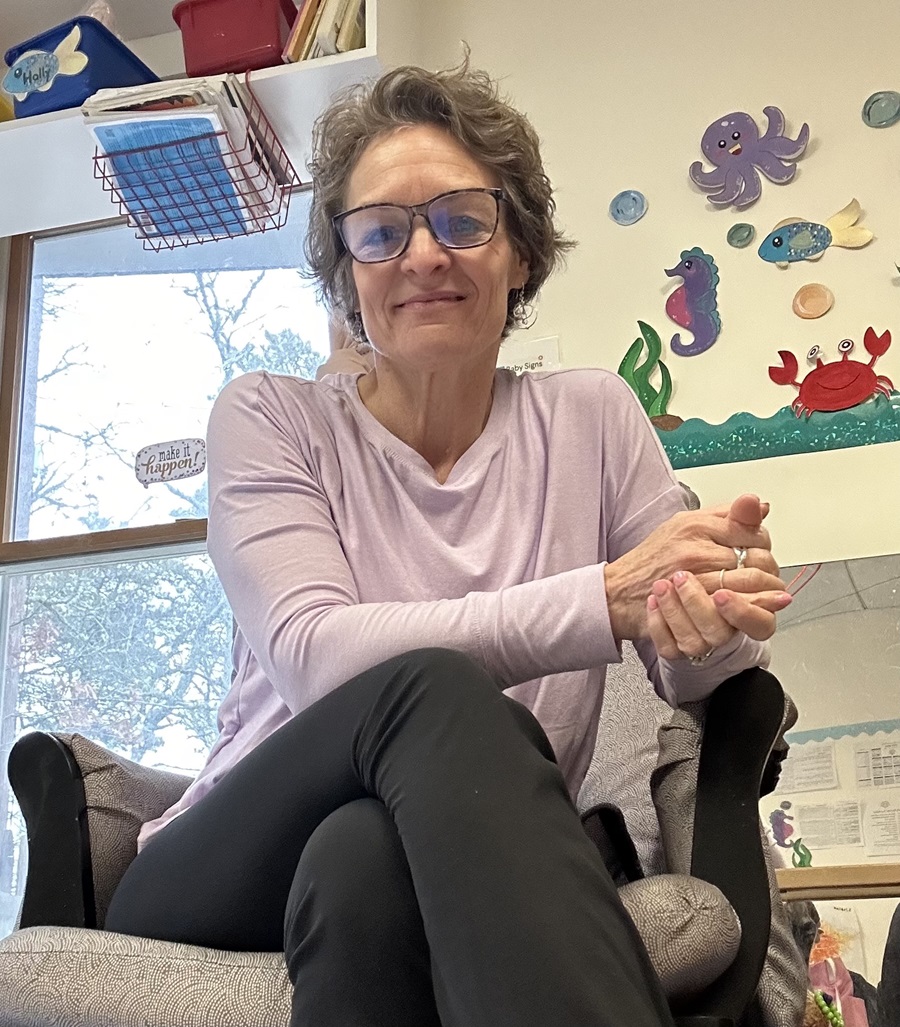
But on the Outer Cape, where winters are stiflingly quiet and there are fewer and fewer young parents, the isolation can be overwhelming. New parents frequently find that playgrounds are empty and that play groups are few and far between, according to Fischer.
This is the New Moms group, a weekly meeting held at 10 a.m. on Thursdays for moms to meet and share advice. All the children are under a year old, and not all the mothers are strictly new — this week, a participant from Wellfleet has another child. Throughout the meeting, Fischer is almost always holding one of the infants because she’s “just trying to give each mom a 15-minute break.”
Fischer lets the mothers talk among themselves, nudging the conversation along from time to time. She puts out muffins and clementines, to which the moms gladly help themselves.
“The group is informal,” says Christina Lee, a mother from Chatham. “Becky will often come with some topics prepared if we want to talk, but usually she just asks, ‘Hey, everybody, what do you want to talk about today?’ ”
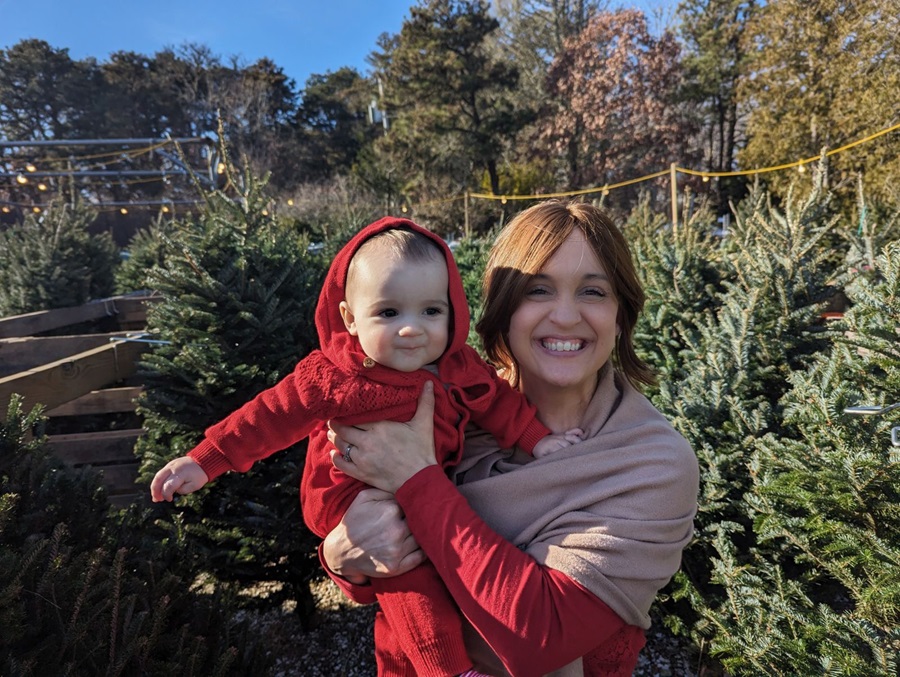
The mothers come from across the Lower and Outer Cape, from Harwich to Truro. Their numbers vary from week to week — sometimes just one, at other times as many as six. Drop-ins and newcomers are always welcome.
Rachel White of Eastham found solace in the group when she felt isolated after giving birth to her daughter, Emma, last July.
“The first week is such a huge transition, and your hormones are coming down, and you don’t want to feel alone,” White says. Talking through those experiences was a help, she says.
Though none of the mothers brings up postpartum depression at this meeting, it is not uncommon. According to the Mass. Dept. of Public Health, as many as 80 percent of all new mothers experience feelings of sadness and worry, called “baby blues,” in the first 10 days after giving birth. The department’s website endorses support groups as a way to address it.
White imagines that if she lived any farther down Cape it would be difficult to find resources for the early days of parenting. “It’s good for me, being near Orleans,” she says, “because it’s more year-round, and I’m not sure how many moms groups there are past Eastham.”
The population of children and young families is shrinking here. In Eastham, the decline in the number of children has been dramatic: in 2000, there were 286 students enrolled at the town’s elementary school. By 2023, that number was 176, according to the Mass. Dept. of Elementary and Secondary Education. And the population is growing older: in 2000, the median age in town was 47.6, according to the census report for that year; as of 2022, it was 59.8, according to the American Community Survey’s estimate.
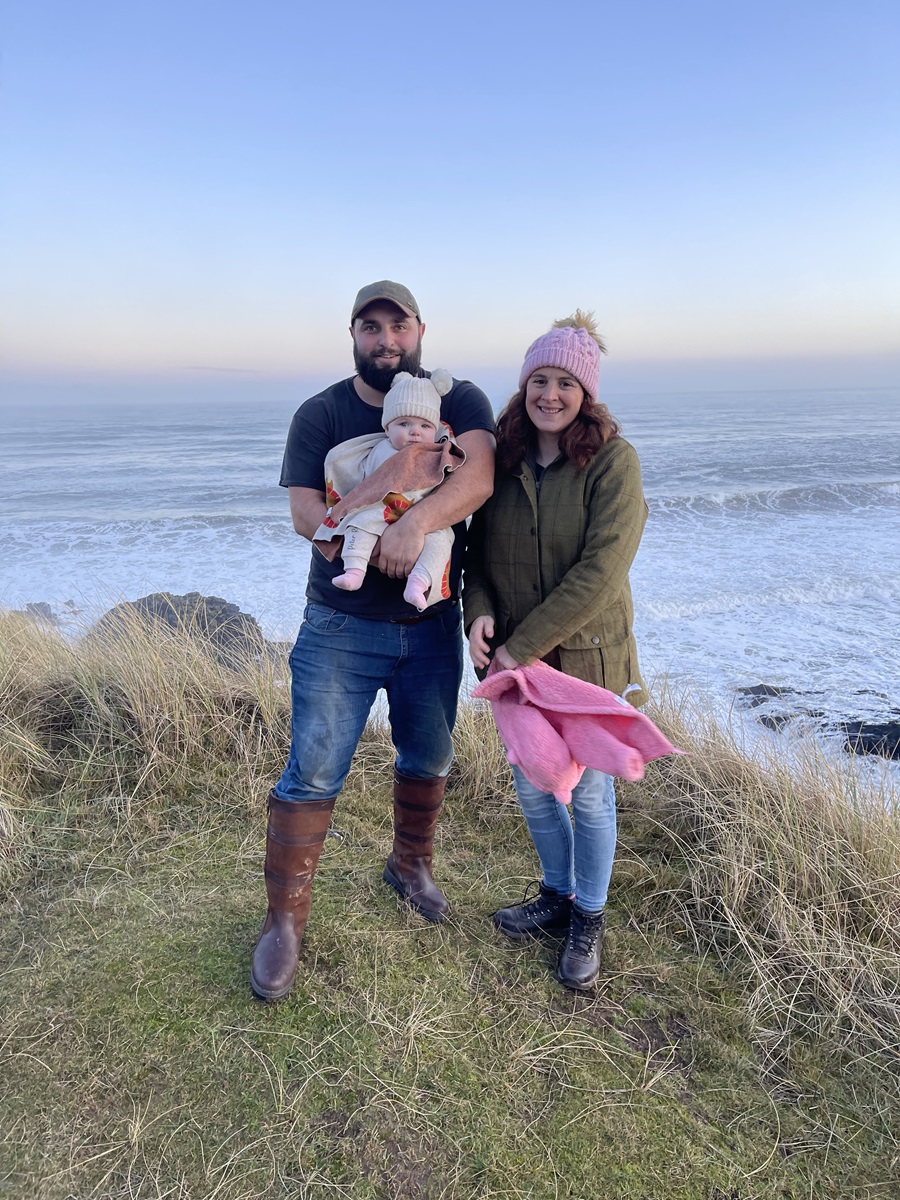
Lee says that without the group she would never have found a community of moms. She was the first to attend the group when it began last June, and for a while she was the only person in it.
“I realized I hadn’t set anything up for myself in terms of social support,” she says. Slowly, other moms joined. Some babies were several months older than hers, and she was able to compare and contrast their stages of development with those of her child, Myles.
Fischer has a master’s degree in counseling and worked as a mental health therapist for 12 years. After raising three children, she wanted to support mothers in the same way that her birth doula had supported her. Now she works as a doula and lactation counselor, contracting part-time with Cape Cod Hospital, as well as working with the Perinatal Wellness Alliance at the Children’s Place.
This group is just one of many that meet at the Cape Cod Children’s Place. It also offers early childhood education, playgroups, groups for dads, and social services for parents recovering from addiction. In a region where the focus on parents is dwindling, the Children’s Place has kept a steady and singular focus on providing resources for children and families since it was founded in 1995.
The New Moms group is discussing the season ahead. “I wasn’t sure if I could bring Emma to the beach when she was a newborn,” says White.
The other moms’ ears perk up at the mention of this Cape Cod conundrum. “Did you keep her in the shade the whole time?” asks one. “How do you keep your milk cold?” asks another.
Fischer laughs. “The sound of the ocean puts them right to sleep, like a white noise machine,” she says.
Part of the success of the group comes from Fischer’s unconditional embrace of the mothers. “I encourage moms to come as they are,” she says. “It’s OK if you show up in your pajamas. It’s OK if you’re grumpy. It’s OK if your baby’s grumpy — just come.”
Fischer connects the mothers to other local resources, from lactation consultants to chiropractors for babies. Lee says that, in one meeting, “we were talking about issues with our babies’ sleep, and the next week Becky brought information about local sleep consultants.” Lee says she was surprised to find that Fischer had already talked to the consultants to get a feel for what they do.
As 11 a.m. — the official end time — passes, the moms keep talking. They linger, seemingly hesitant to leave, and Fischer doesn’t rush them out. Two mothers are new to the group this week, and they tell Fischer they plan on coming back. Soon enough, everyone begins to gather their belongings, and Fischer helps carry strollers to the parking lot.
